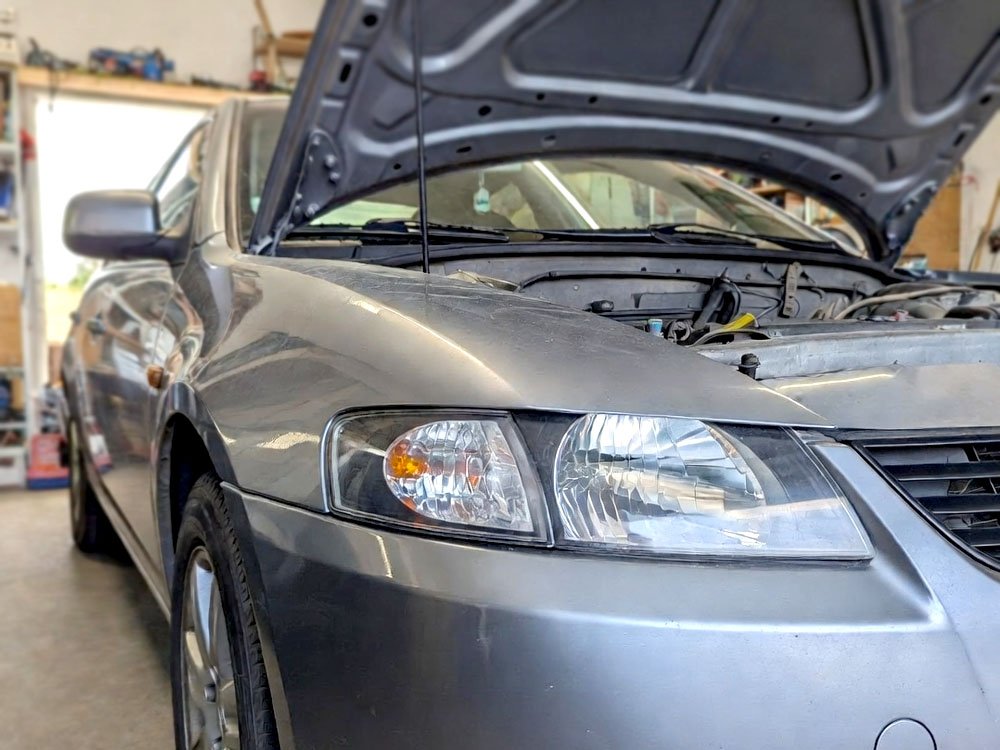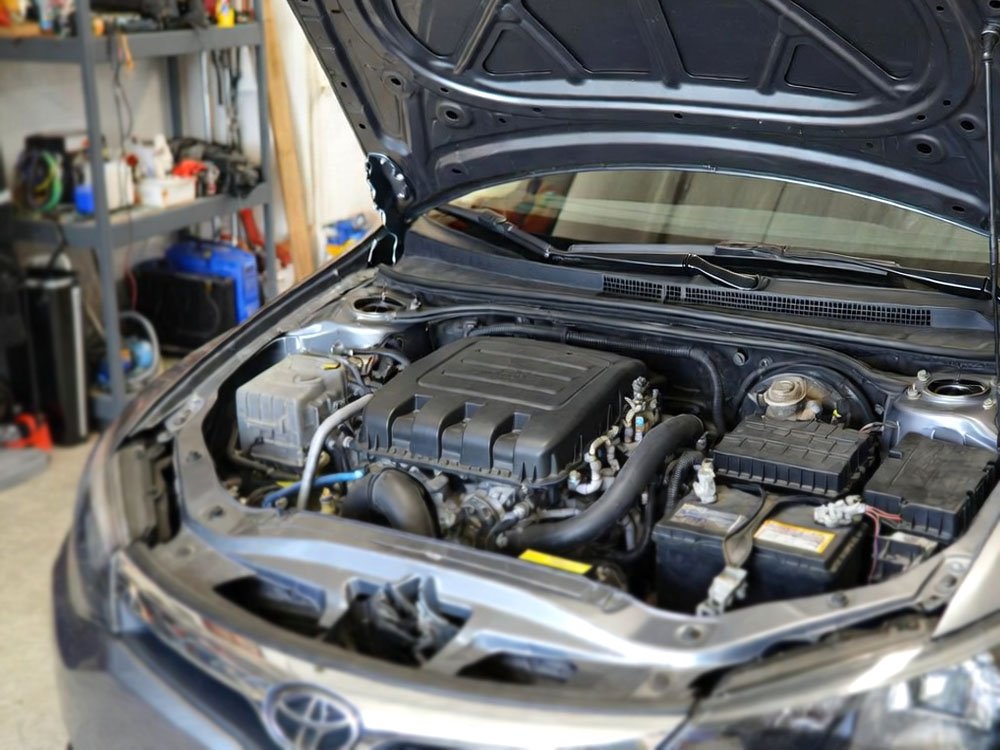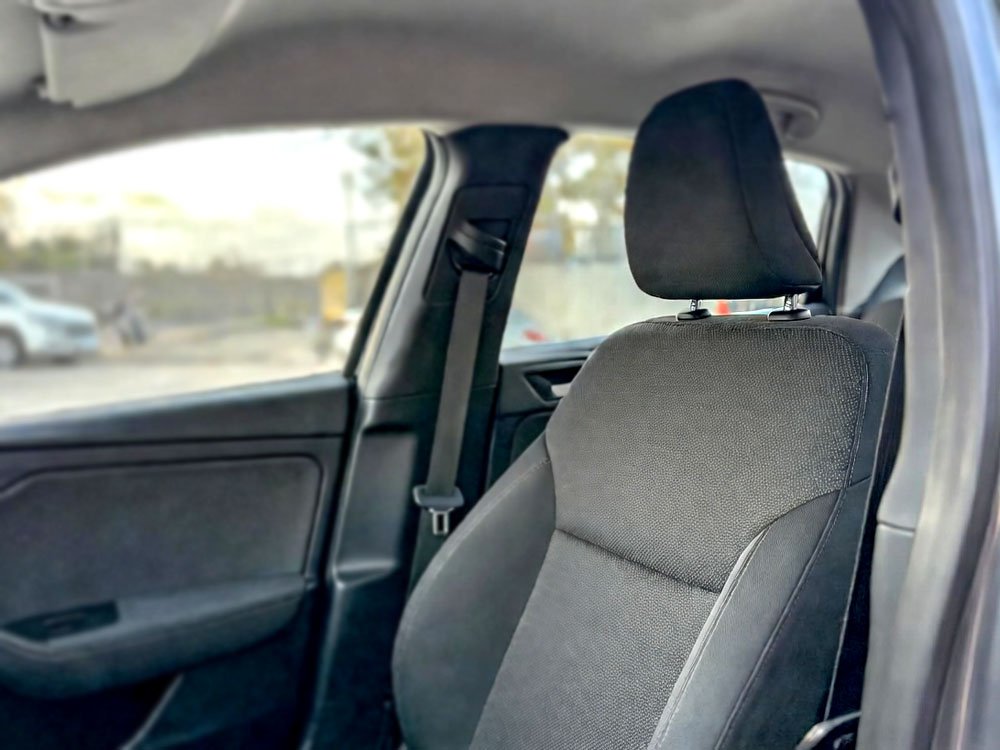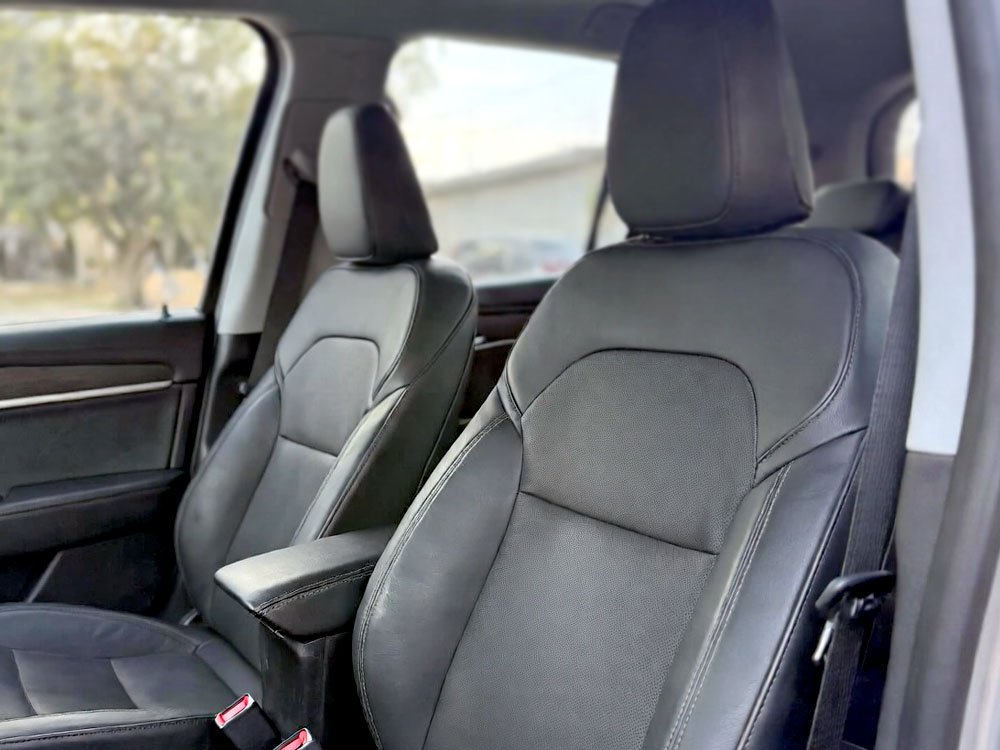You are driving your car and suddenly it feels weak or slow. Maybe it starts shaking or even shuts off. You feel scared and don’t know what to do. The truth is, a car losing power while driving is a common problem and has clear reasons and solutions. It can happen because of fuel issues, engine problems, or even simple things like a dirty filter. In this article, you will learn the real reasons and how to fix them, so your car stays strong and safe on the road.
Check the Fuel System First
One of the biggest reasons your car loses power while driving is a problem in the fuel system. Your car engine needs fuel to work. If there is not enough fuel or if the fuel is not flowing right, your car will struggle. You might press the gas pedal, but the car doesn’t move fast. It might even stop in the middle of the road.
Sometimes, the fuel pump is the problem. The fuel pump moves fuel from the tank to the engine. If the pump is old or weak, it can’t push enough fuel. You might notice the car jerking or losing power, especially when you go uphill or carry more weight. In some cars, the fuel pump starts making a loud humming noise before it fails.
Another thing to check is the fuel filter. The filter cleans the fuel before it reaches the engine. Over time, it gets dirty. If the filter is clogged, fuel cannot pass through. This makes the engine run weak or stop. Most people forget to change the fuel filter. It should be changed every 20,000 to 40,000 miles depending on the car.
Dirty or bad fuel can also cause power loss. If you filled gas at a place with bad fuel, it might hurt your car. The fuel could have water or dirt in it. This can damage parts inside the fuel system and block the flow.
Fuel injectors are also part of the fuel system. They spray fuel into the engine. If they are dirty or leaking, your engine does not get the right amount of fuel. This can cause power loss, poor mileage, and engine misfire.
You can get your fuel system checked by a mechanic. They can test the fuel pressure and check all parts. If you take care of your fuel system, your car will stay strong.
- Check fuel pump for noise or weak pressure
- Replace old fuel filter to improve flow
- Avoid gas stations with dirty or cheap fuel
- Clean or replace bad fuel injectors
- Get fuel system checked every 20,000 miles
Look at the Air Intake System
Your car engine needs air just like it needs fuel. The air mixes with fuel to make the engine run. If the air system has a problem, your car loses power. One of the first things to check is the air filter. It keeps dust and dirt out of the engine. Over time, the air filter gets dirty and blocks the air. When this happens, your engine cannot breathe well. It feels weak and slow.
Changing the air filter is easy. You can do it yourself or go to a mechanic. Most air filters should be replaced every 12,000 to 15,000 miles. If you drive in dusty places, change it more often.
Next, check the mass air flow sensor. This small sensor tells your car how much air is coming in. If this sensor is dirty or broken, it gives wrong information. Your engine might get too much fuel or not enough fuel. This causes loss of power, shaking, or even black smoke from the exhaust. You can clean this sensor using a spray cleaner made for it.
Also, check for air leaks. If the pipes or hoses in the air intake system are cracked or loose, air can leak out. The engine will not get the right amount of air. Your car might run rough, lose power, or stall. A mechanic can do a smoke test to find leaks.
The throttle body is another part to check. It controls how much air enters the engine. If it’s dirty or sticky, your car might hesitate when you press the gas. Cleaning the throttle body helps the engine run better.
All these small parts help your car breathe. If they don’t work well, your engine feels tired.
- Change air filter every 12,000 miles
- Clean mass air flow sensor regularly
- Check hoses for air leaks or cracks
- Clean throttle body to improve engine response
- Get smoke test if unsure about leaks
Inspect the Ignition System
The ignition system is what starts your engine and keeps it running. It creates the spark that lights the fuel. If the ignition system has a problem, your car may lose power or misfire. The first thing to look at is the spark plugs. These small parts fire up the engine by making sparks. If they are old, dirty, or worn out, the engine will not run smoothly. It may feel shaky or slow.
Spark plugs usually last 30,000 to 100,000 miles depending on the type. Check your car manual to know when to change them. Replacing old spark plugs can make your car feel new again.
Next, look at the ignition coils. These parts send power to the spark plugs. If one of them is weak or broken, that cylinder will not fire correctly. Your car might shake, lose power, or the check engine light may come on.
Another thing is the spark plug wires. In older cars, these wires carry power to the spark plugs. If they are cracked or loose, the spark may be weak. You should replace them if they are old or damaged.
The ignition switch can also cause power loss. If the switch is bad, it may cut power to the engine. You might notice your car turns off while driving. This is dangerous and should be fixed fast.
Modern cars also have sensors in the ignition system. These sensors help the car computer decide when to fire the spark. If a sensor fails, your engine may not run right.
- Replace spark plugs on schedule
- Check ignition coils for weak or failed ones
- Replace old or cracked spark plug wires
- Fix bad ignition switch quickly
- Test ignition sensors for correct signal
Examine the Exhaust System
The exhaust system takes out gases from the engine. If something blocks it, your car can lose power. One main part to check is the catalytic converter. This part cleans the bad gases before they go out the exhaust pipe. But it can get clogged or damaged. When it is blocked, your engine feels like it cannot breathe out. This causes power loss, poor mileage, and even engine damage.
You might notice a rotten egg smell if the converter is bad. Or, your car might feel like it’s choking when you press the gas. A mechanic can test it using a temperature test or a back pressure test.
Next, look at the muffler and exhaust pipe. If they are rusted or broken, exhaust gases may not flow right. Sometimes, animals crawl into the exhaust and block it. This can also cause sudden power loss.
Another part is the oxygen sensor. It checks how much oxygen is in the exhaust. If this sensor is wrong, the car computer gets confused and sends too much or too little fuel. This makes your car lose power or run rich.
Exhaust leaks can also affect your car. If gases are leaking before they reach the tailpipe, it can mess up the oxygen readings and hurt engine performance. It can also be dangerous for you because some gases are poisonous.
- Test and replace clogged catalytic converter
- Check for rusted or broken muffler or pipes
- Replace bad oxygen sensors
- Fix exhaust leaks quickly
- Listen for strange noises from under the car
Watch for Transmission Problems
The transmission is what moves power from the engine to the wheels. If it has a problem, your car will not move correctly. You might press the gas, but the car feels slow, or the engine revs but the car does not go faster.
One sign is slipping gears. This means your transmission is not staying in gear. You may feel jerks or hear strange noises. This is often caused by low or dirty transmission fluid. You should check the fluid level and color. Clean fluid is red or pink. If it’s dark or smells burnt, it needs to be changed.
Delayed shifting is another sign. Your car may take too long to change gears. This is dangerous when merging or passing. It often means the transmission is worn out or the fluid is low.
Some cars have sensors in the transmission. If a sensor fails, the car may not know when to shift. This causes rough driving or power loss. A mechanic can read the trouble codes to find the problem.
Manual transmissions can also have clutch problems. If the clutch is slipping or worn, your car will not move properly. You might hear grinding or feel soft clutch pedal.
Transmission problems can be costly if not fixed early. Always check and service it on time.
- Check and change transmission fluid
- Watch for slipping or delayed shifts
- Fix or replace broken transmission sensors
- Test manual clutch if the car has one
- Service transmission every 30,000 to 60,000 miles
Test the Car’s Electrical System
Your car’s electrical system is like its brain. If something goes wrong, your car can lose power. First, check the battery. If the battery is weak or old, it cannot give power to important parts. You might see dim lights, weak horn, or slow starts. A dead battery can also shut down the car while driving.
Next, check the alternator. This part charges the battery and powers the car when the engine is running. If it fails, your car will lose power slowly. Lights will dim, and the engine might stall. You can test the alternator with a voltmeter or have a shop check it.
Wires and fuses can also cause problems. If a wire is loose or a fuse is blown, some parts might not work. This can cause the fuel pump, ignition, or sensors to stop. You may not see any warning lights, but your car feels weak or dies.
Sensors and the car computer (ECU) are also part of the electrical system. If a sensor sends wrong data, your car may lose power. Common sensors that fail are the crankshaft sensor, camshaft sensor, and throttle position sensor.
- Test battery and replace if over 3 years old
- Check alternator for correct charging
- Inspect wires and fuses for damage
- Replace bad sensors like crankshaft or throttle sensor
- Scan car computer for error codes
Final Thoughts
Losing power while driving is scary and dangerous, but there is always a reason. Most of the time, the cause is easy to fix if found early. Whether it’s fuel, air, spark, exhaust, transmission, or electric problems, your car gives signs before it breaks down. Listen to your car. Get regular checkups. Fix small problems before they grow big. This way, your car will stay strong, safe, and smooth on the road for a long time.
| Area | Common Problem | Sign of Problem | How to Fix | When to Check |
|---|---|---|---|---|
| Fuel System | Weak fuel pump | Car jerks, no power uphill | Replace fuel pump | Every 60,000 miles |
| Fuel Filter | Dirty or clogged | Engine slow or stalls | Replace filter | Every 20,000 miles |
| Air Filter | Blocked or dusty | Poor acceleration | Change air filter | Every 12,000 miles |
| Ignition System | Bad spark plugs | Engine misfires, shaking | Replace spark plugs | Every 30,000 miles |
| Catalytic Converter | Clogged | Rotten smell, weak engine | Replace converter | As needed |
| Transmission Fluid | Low or dirty | Slipping gears, delay in shifting | Change fluid | Every 30,000 miles |
| Battery | Weak or old | Dim lights, car dies | Replace battery | Every 3-5 years |
| Alternator | Failing | Car loses power slowly | Replace alternator | If voltage is low |
Frequently Asked Questions (FAQs)
Is it safe to drive when the car loses power?
No, it is not safe to keep driving if your car is losing power. It can become hard to control your speed, especially on highways or in traffic. Your car might stall or stop suddenly, which can lead to an accident. It is best to pull over safely, turn off the engine, and check for any warning lights. Then, call for help or take your car to a mechanic. Driving with power loss can damage your engine and other parts more.
Can bad fuel make my car lose power?
Yes, bad fuel can cause power loss. If the gas you used is dirty or has water in it, it can harm your fuel system. It might clog the fuel filter or damage the fuel pump and injectors. The engine may run rough or stop suddenly. You might also smell strange fuel odors. Always fill up at trusted gas stations, and if you suspect bad fuel, have the system cleaned as soon as possible.
Do I need to replace the air filter often?
Yes, the air filter needs regular replacement. A dirty air filter blocks air from reaching the engine. Without enough air, the engine can’t burn fuel properly. This causes power loss, poor mileage, and rough driving. It’s good to replace the air filter every 12,000 to 15,000 miles, or sooner if you drive in dusty areas. A clean air filter helps your car breathe better and run stronger.
Is it the spark plugs causing my car to lose power?
It could be. Spark plugs give the spark that lights the fuel. If they are old, dirty, or worn out, the engine can misfire. This makes your car feel weak, shake, or use more fuel. It’s a common reason for power loss. Replacing spark plugs is easy and not expensive. New spark plugs can make your car run smoother and faster again.
Can a clogged catalytic converter stop my car?
Yes, a clogged catalytic converter can make your car lose power or even stop. It blocks the gases from leaving the engine. When that happens, pressure builds up and the engine can’t run well. You may smell something like rotten eggs or hear strange sounds. If the converter is fully blocked, your car might not start at all. It’s important to replace it if it’s bad.
Do I have to change transmission fluid?
Yes, changing transmission fluid is important. If the fluid is old or low, your car might slip gears, shift hard, or lose power. Clean fluid helps the transmission work smoothly. Most cars need new transmission fluid every 30,000 to 60,000 miles. If it smells burnt or looks dark, change it sooner. Keeping the fluid fresh can stop big problems later.
Is it possible the battery is making the car feel weak?
Yes, a weak battery can cause power problems. If the battery doesn’t give enough power, the engine and other parts won’t work right. The lights may dim, the car may not start, or it may stall. If your battery is over 3 years old, test it. Replacing an old battery can stop your car from dying on the road.
Can bad sensors cause power loss in cars?
Yes, sensors are very important. They tell the car’s computer how to control fuel, spark, and air. If a sensor like the crankshaft, camshaft, or throttle sensor fails, your car may run poorly or lose power. Sometimes, the check engine light comes on. A mechanic can scan your car for codes to find the bad sensor. Fixing it will help your car run better.








